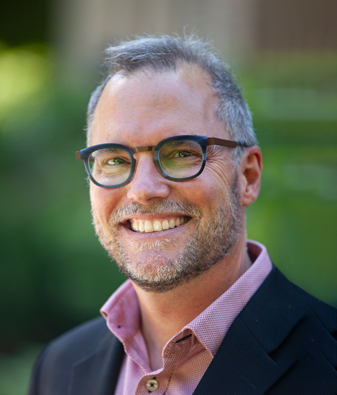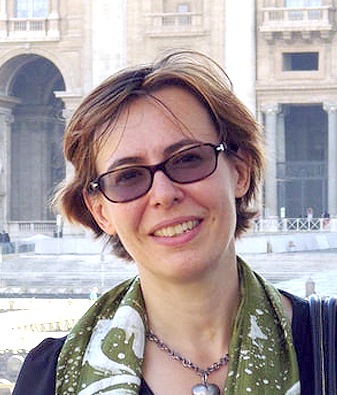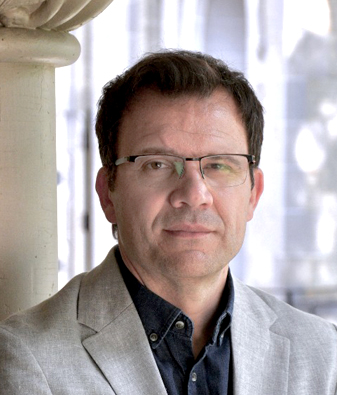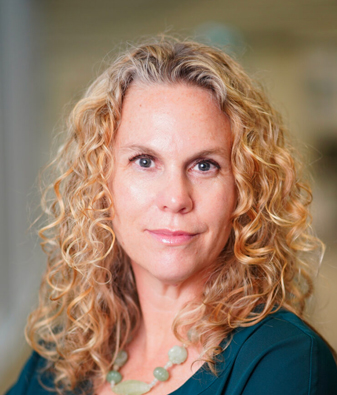The Faculty of Arts & Science is known throughout the world for the volume, impact and high quality of its research across a large variety of disciplines. This month, the noteworthy research achievements of five scholars in the faculty are being recognized with the Dean’s Research Excellence Awards.
Now in its third year, the awards were established to help accomplished mid-career researchers to compete successfully in national award competitions. The winning researchers are being celebrated for the sustained influence they exert in their respective disciplines. Each of them will receive $10,000 to further their research and professional development.
"Research excellence is a cornerstone of the Faculty of Arts & Science — the largest faculty at U of T, which is the country’s top-ranked research institution," says Antoinette Handley, acting dean of the Faculty of Arts & Science. "This year, we proudly recognize a group of scholars whose collective work demonstrates the innovation, perseverance and accomplishment for which our faculty is widely known."
2024 winners:

Jacques Bertrand, Political Science
Jacques Bertrand is a professor in the Department of Political Science, as well as director of the Collaborative Master’s Specialization in Contemporary East and Southeast Asian Studies. He was the founding director of the Centre for Southeast Asian Studies at the Munk School of Global Affairs & Public Policy’s Asian Institute. He is also the co-founder of the Postcor Lab at U of T, a research hub for the study of civil wars and war-to-peace transitions.
Bertrand has worked for many years on issues of ethnic conflict, nationalism and secessionism in southeast Asia. His most recent book is entitled Winning by Process: The State and Neutralization of Ethnic Minorities in Myanmar (w/ Ardeth Thawnghmung and Alexandre Pelletier, Cornell). In 2021, he published Democracy and Nationalist Struggles in Southeast Asia: From secessionist mobilization to conflict resolution (Cambridge). He is also the author of two other books on political change, nationalism and ethnic conflict in southeast Asia, and has co-edited two volumes: Multination States in Asia: Accommodation or Resistance (Cambridge); and Democratization and Ethnic Minorities: Conflict or Compromise? (Routledge.)

Laura Colantoni, Spanish & Portuguese
Laura Colantoni is a professor in the Department of Spanish & Portuguese. Her research focuses on sound change and categorization and the second language acquisition of variable phonetic parameters. She published an edited volume on Argentine Spanish in 2013 (Perspectivas teóricas y experimentales sobre el español de la Argentina, Iberoamericana, w / C. Rodríguez Louro), and has recently published another book: Second Language Speech: An Introduction (w / P. Escudero, & J. Steele), with Cambridge University Press.
In recent years, she has been working on several SSHRC and U of T supported research projects, alone and in collaboration with colleagues in French, linguistics and speech-language pathology. Colantoni’s most recent SSHRC-funded collaborative project focuses on the impact of phonetic variability on the first language acquisition of grammatical properties in Spanish-English bilinguals. She is also currently collaborating on an electropalatographic study of assimilatory patterns in English, French, Japanese and Spanish as first and second languages.

Sebastian Sobecki, English
Sebastian Sobecki is a professor of later medieval English literature in the Department of English, with a cross-appointment to the Centre for Medieval Studies. His research and teaching extend to a wide area of late medieval and early modern literature, with a focus on ideas of the self, life writing, and materiality in the literary history of the long fifteenth century. Authorship, law, travel, manuscripts, and palaeography are central to his practice.
Sobecki is a Fellow of the English Association and the Royal Historical Society, and has also held fellowships with All Souls College (Oxford), Harvard University, the Huntington Library, Magdalen College (Oxford), and Yale University. He is a recipient of the John Hurt Fisher Prize from the John Gower Society, and his work has been covered widely by the press and media.
In addition to writing The Marvels of John Mandeville (Reaktion Books), completing the monograph The Invention of Colonialism: Richard Hakluyt and Medieval Travel Writing (Cambridge), and co-writing a book on Christine de Pizan with Misty Schieberle and Elizaveta Strakhov (The Mother of English Literature, Cambridge) he is working on two book-length studies on Chaucer and authorial intention in 15th-century literature and on the handwriting and literary culture of London's bureaucratic clerks.

Lisa Strug, Statistical Sciences & Computer Science
Lisa Strug is a professor in the Department of Statistical Sciences and the Department of Computer Science. She is cross-appointed in Biostatistics at the University of Toronto and is a senior scientist in the Program in Genetics and Genome Biology at the Hospital for Sick Children. Strug is the inaugural director of the Data Sciences Institute (DSI), a tri-campus, multi-divisional, multi-institutional, multi-disciplinary hub for data science activity at U of T and affiliated research institutes.
She is a statistical geneticist and her research focuses on the development of novel statistical approaches to analyze and integrate multi-omics data to identify genetic contributors to complex human disease.
In addition to her directorship of the DSI, Strug holds several other leadership positions affiliated with the university: she is director of the Canadian Statistical Sciences Institute Ontario Region (CANSSI Ontario) and associate director of the Centre for Applied Genomics at the Hospital for Sick Children, where she is also the lead of the Canadian Cystic Fibrosis Gene Modifier Consortium and the Biology of Juvenile Myoclonic Epilepsy International Consortium. Strug has received several honours including the Tier 1 Canada Research Chair in Genome Data Science.

Janelle Taylor, Anthropology
Janelle Taylor is a professor in the Department of Anthropology. She is a medical anthropologist, trained as an ethnographer. She researches the social and cultural dimensions of medicine and care in North America. She engages with the ways in which ideas, words and images have force in the world, how “persons” are socially made and unmade, and how medicine and health care are involved in these processes.
She has worked with interdisciplinary health research teams, and has published in journals of medicine and gerontology, medical anthropology, and cultural anthropology. Research topics she has addressed include: fetal ultrasound imaging, advanced care planning and medical decision-making at the end of life, conceptualizations of “culture” within medical education, the use of “Standardized Patient” simulations to teach clinical skills to medical students, and more. Recently, most of Taylor’s research has focused on dementia and caregiving, and she is working on a book on this topic. Her article “On Recognition, Caring and Dementia,” published in the journal Medical Anthropology Quarterly, was adapted into a story for the National Public Radio show “This American Life” in 2024.

